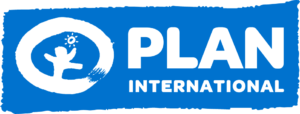Plan International Ireland’s Work on GBV
Plan International Ireland is part of Plan International, founded over 80 years ago; we are a development and humanitarian organisation working to advance children’s rights and equality for girls. We are an independent organisation with no religious, political or governmental affiliations. We work in the poorest regions and countries with a strategic ambition to support women and girls to decide to have control over their own lives and combat GBV.
Plan International Ireland has GBV centred projects running across West Africa, and beyond, dedicated to combating Female Genital Mutilation (FGM) and the practice of Child, Early and Forced Marriage (CEFM) while providing communities with Inclusive Quality Education and child protection in both development and emergency contexts.
The majority of girls subjected to FGM around the world are cut before they turn 15 years old[1] while in sub-Saharan Africa, 40% of girls are married before age 18[2]; and so efforts to eradicate these types of GBV within the education and child protection sectors are especially important. Education is a powerful tool for preventing CEFM. Girls who benefit from a quality education are less likely to marry while they are still children.
Plan International Ireland’s education projects include steps to strengthen or create community-based capacity building mechanisms like Mothers’ Associations, Children Governments, and School Monitoring Committees. Plan works to engage teachers, students, community leaders and animators, as well as traditional leaders and elders in dialogue and skills-building activities that promote changes in behaviour and attitude to GBV.
In Liberia, Plan works to combat GBV by strengthening the capacity of health and social service providers through training and mentorship in Safe Homes for GBV survivors and influencing policy makers. In Egypt plan aims to tackle the root causes of GBV, by engaging communities, especially men and boys, and traditional and religious leaders to change norms and eliminate the practice. In Guinea Bissau Plan has been working to break down cultural taboos surrounding uncut girls, which led to nine communities making a public Declaration of Abandonment of the practice of FGM in 2018.
There is evidence that crises can exacerbate the problem of CEFM, especially in protracted displacement settings. Plan International Ireland has responded to crises in Cameroon, Nigeria, Niger, Burkina Faso, Egypt, Jordan and Bangladesh, providing schools and Child Friendly Spaces (CFS) where children can learn safely, and receive Psychosocial Support (PSS). CFS provide an environment for open discussion, raising awareness of risky situations for children, are a safe place to play and learn and provide young GBV survivors with an approachable entry point into the referral pathway so that they can access health and PSS services.
[1]World Health Organization (2019) Sexual and Reproductive Heath: Female Genital Mutilation. Available at: https://www.who.int/reproductivehealth/topics/fgm/prevalence/en/
[2] UNICEF Child marriage is a violation of human rights, but is all too common. Available at: https://data.unicef.org/topic/child-protection/child-marriage/
